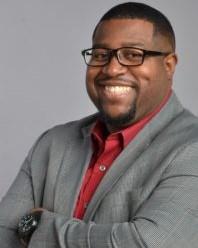 Our youth need our help. A new CDC survey shows significant increases in high school students reporting persistent feelings of sadness or hopelessness, considering suicide or attempting suicide over the past decade – trends that have been exacerbated by the COVID-19 pandemic.
Our youth need our help. A new CDC survey shows significant increases in high school students reporting persistent feelings of sadness or hopelessness, considering suicide or attempting suicide over the past decade – trends that have been exacerbated by the COVID-19 pandemic.
Since the pandemic began, more than two out of five students (44%) reported persistent feelings of sadness or hopelessness that caused them to stop doing usual activities. About one in five seriously considered suicide, and nearly one in 10 attempted suicide.
Alongside this jarring news, the survey also reported that students who felt they could turn to someone at school were significantly less likely to report poor mental health during the pandemic. Research shows that having caring adults outside the family who serve as mentors and role models can serve as an important protective factor for children. This connection underscores the importance of Youth Mental Health First Aid (YMHFA).
YMHFA, which speaks to adults who work or live with children and youth, is structured around the Mental Health First Aid (MHFA) Action Plan (ALGEE):
If it weren’t for the skills-based training I received as a Mental Health First Aider and my experiences as an Instructor and National Trainer, I wouldn’t have had the tools I needed to support my son. When he was 17, the bullying he was experiencing in high school led to his deep depression, anxiety and ultimately suicidal ideation. I am grateful that he is now on his recovery journey and doing well!
However, getting there wasn’t easy. I utilized the MHFA Action Plan (ALGEE) to get him the help he needed and into treatment. If it were not for “L” – “Listen nonjudgmentally” – I might not have recognized the signs and symptoms of his mental health challenges or known the right resources to connect him to.
I am convinced that our youth not only need, but also want, our help. However, so often young people are hesitant to convey the pain they are experiencing for fear of being judged or not taken seriously. We must show them that we care and want to hear what they have to say. We can do that by committing to listening nonjudgmentally.
I have no doubt I have been able to help my son and the many youths I have served as a mentor and role model because I listened nonjudgmentally. The keys to listening without being judgmental are three-fold:
In addition to using the MHFA Action Plan (ALGEE), whenever I encounter young people in distress, suffering or experiencing feelings of isolation, I employ four steps to “HELP” them:
The key in my HELP model is that it must be the youth’s plan, something we create together. When we empower the young person to create their own strategy with our support, they are more likely to follow it.
I have written more deeply about these steps in my book, “Bottled Up Inside: African American Teens and Depression,” when I said, “Hearing youth means we allow them to share freely with us their experiences, and we encourage them not to worry about trying to filter their words to make us feel comfortable.”
After hearing our youth, we must meet them where they are to engage them authentically. We can’t focus on pushing and prodding them to take the path we want them to take; we must walk alongside them on their journey of recovery and healing.
Once we engage our youth and walk with them on their journey, we will learn what they need from us. As we learn more about their needs, there is a perfect opportunity to give reassurance and information. And as we continue on that walk, we might encourage them to seek appropriate professional help and encourage self-help and other support strategies. We can also emphasize the importance of youth building out a personalized circle of support of parents and other trusted, caring adults who can help support them on their journey.
Although as a nation we are experiencing a mental health crisis, we can overcome the challenges that the pandemic has amplified in the lives of our youth. But we can only do it together. I encourage you to get trained in Youth Mental Health First Aid, because you might be the one adult that can #BeTheDifference for the youth you encounter.
If you or someone you care about feel overwhelmed with emotions like sadness, depression or anxiety, or like you want to harm yourself or others, call 911.
You can also contact the Substance Abuse and Mental Health Services Administration’s (SAMHSA) Disaster Distress Helpline at 800-985-5990, the National Suicide Prevention Lifeline at 800-273-8255 (TALK) or text “MHFA” to 741-741 to talk to a Crisis Text Line counselor.
References
Center for Disease Control and Prevention. (2022, April 1). Adolescent Behaviors and Experiences Survey – United States, January-June 2021. U.S. Department of Health and Human Services. https://www.cdc.gov/mmwr/volumes/71/su/pdfs/su7103a1-a5-H.pdf.
Centers for Disease Control and Prevention. (2021, Jan. 5). Risk and Protective Factors. Centers for Disease Control and Prevention. https://www.cdc.gov/violenceprevention/aces/riskprotectivefactors.html.
McPhillips, D. (2022, March 31). ‘Youth are in crisis’: Mental health of US high school students worsened during the Covid-19 pandemic, CDC survey finds. St. Louis Post-Dispatch. https://www.stltoday.com/news/national/youth-are-in-crisis-mental-health-of-us-high-school-students-worsened-during-the-covid/article_fbb7a060-7514-5c6d-b856-0baf6454c152.html#tracking-source=in-article.
Substance Abuse and Mental Health Services Administration (SAMHSA). (2019, July 18). Risk and Protective Factors. SAMHSA. https://www.samhsa.gov/sites/default/files/20190718-samhsa-risk-protective-factors.pdf?msclkid=5730c990b4e911ec9343133c8e2da963.
The White House. (2022, March 1). FACT SHEET: President Biden to Announce Strategy to Address Our National Mental Health Crisis, As Part of Unity Agenda in his First State of the Union. The White House. https://www.whitehouse.gov/briefing-room/statements-releases/2022/03/01/fact-sheet-president-biden-to-announce-strategy-to-address-our-national-mental-health-crisis-as-part-of-unity-agenda-in-his-first-state-of-the-union/?msclkid=42a06f3cb4e611ec98fc979c05a5efed.